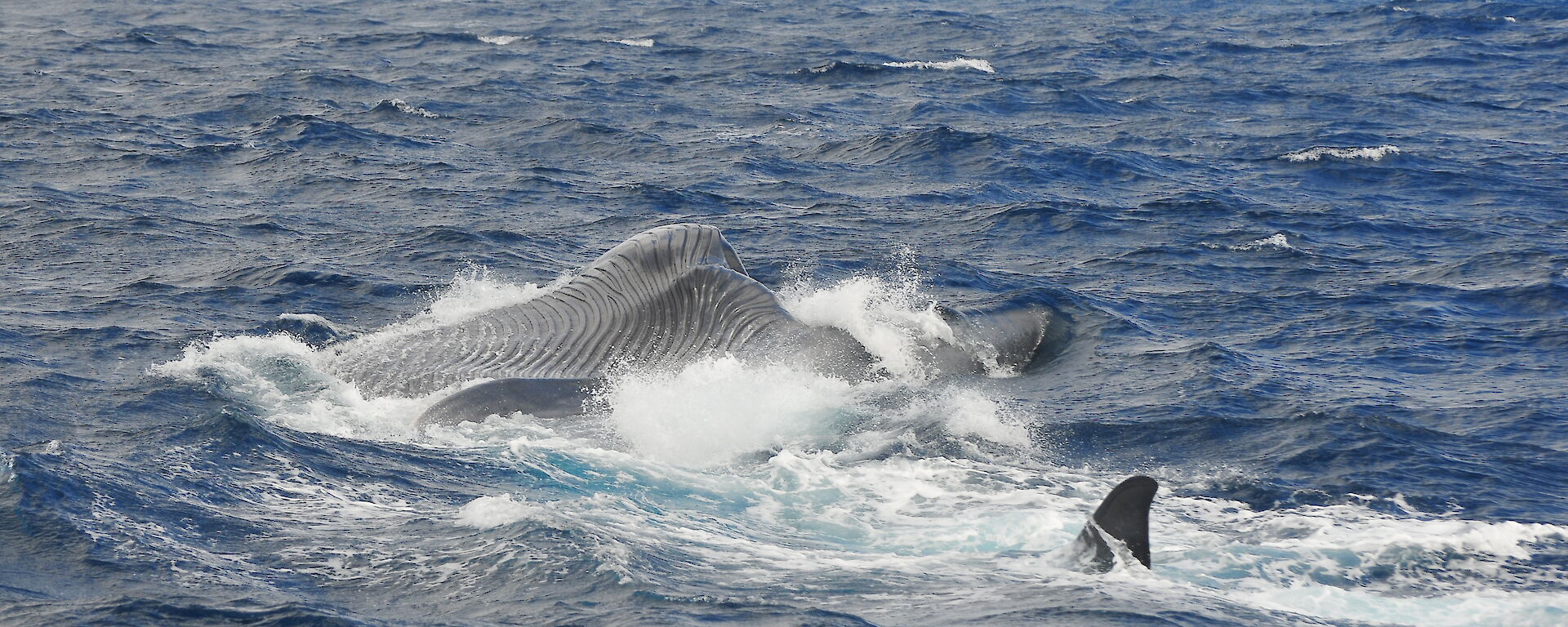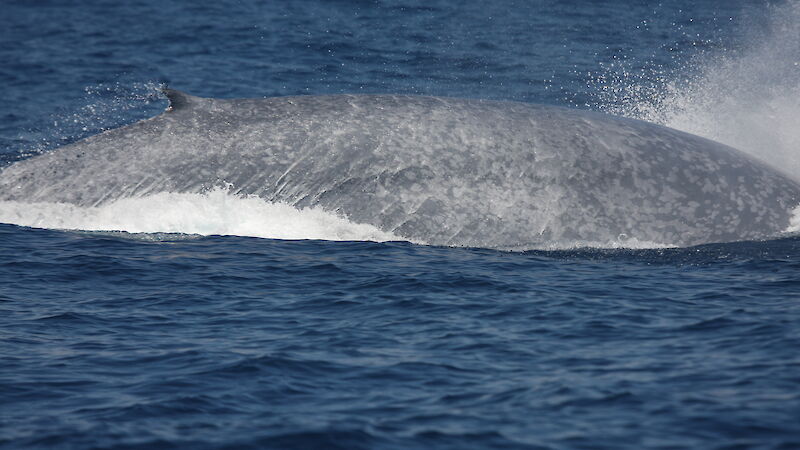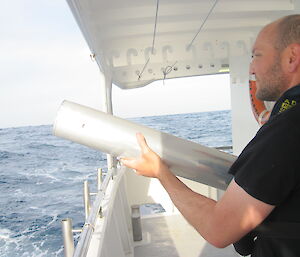A team of international whale researchers leaves Hobart today in search of the biggest creature on Earth, the Antarctic blue whale.
The scientists from Australia, United States, United Kingdom, Chile and New Zealand, will use newly-developed passive acoustic sonobuoy methods to track and locate the elusive animals across hundreds of kilometres in the Southern Ocean.
Environment Minister Tony Burke said this is the inaugural voyage of the Antarctic Blue Whale Project which aims to estimate the abundance, distribution and behaviour of the species.
“The Antarctic blue whale can grow to over 30 metres in length and weigh up to 180 tonnes, its tongue alone is heavier than an elephant and its heart is as big as a small car. Even the largest dinosaur was smaller than the blue whale,” Mr Burke said.
“Despite their colossal size we know very little about the animals, including where they breed and feed, and how many remain in our oceans today after industrial whaling slaughtered more than 340,000 of them in the early 1900s.”
The researchers will target areas thought to be frequented by the blue whales along the ice edge west of the Ross Sea.
If survey methods are successful in locating the whales, photographs of the animals’ flanks and biopsy samples will be taken to build individual sighting histories that will assist in estimating population size.
Mr Burke said the 18-strong team will also work from small boats in freezing Antarctic conditions to deploy satellite tags on the animals.
“We then aim to be able to track their movements within their Antarctic feeding grounds and potentially further north to their breeding areas,” he said.
“This research shows, in contrast to Japan’s so called “scientific whaling” program, that you don’t have to kill these majestic creatures to get valuable information about them.”
The project is a flagship program of the international Southern Ocean Research Partnership (SORP) involving ten countries — Argentina, Australia, Brazil, Chile, France, Germany, New Zealand, Norway, South Africa and the United States.
SORP was initiated by Australia through the International Whaling Commission (IWC) to promote non-lethal research in the Southern Ocean.
“Today the Antarctic blue whale is classified as critically endangered by the International Union for Conservation of Nature and is of global interest as one of the most at risk baleen whale species in the Southern Ocean,” Mr Burke said.
“The information gathered in this research will be supplied to the IWC to assist in the conservation and recovery of this iconic species.”
The voyage departs from Nelson in New Zealand on January 29 and returns in mid-March.




